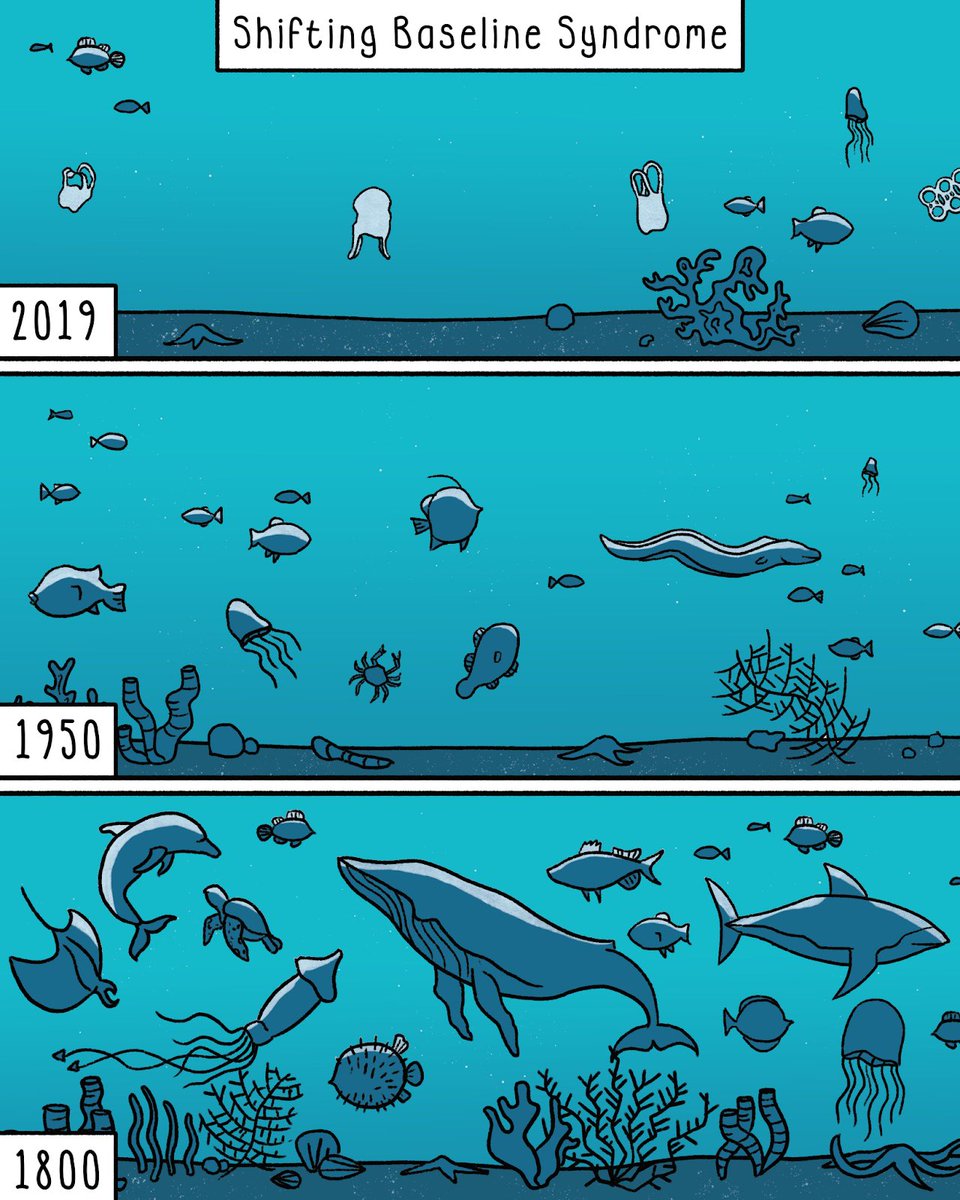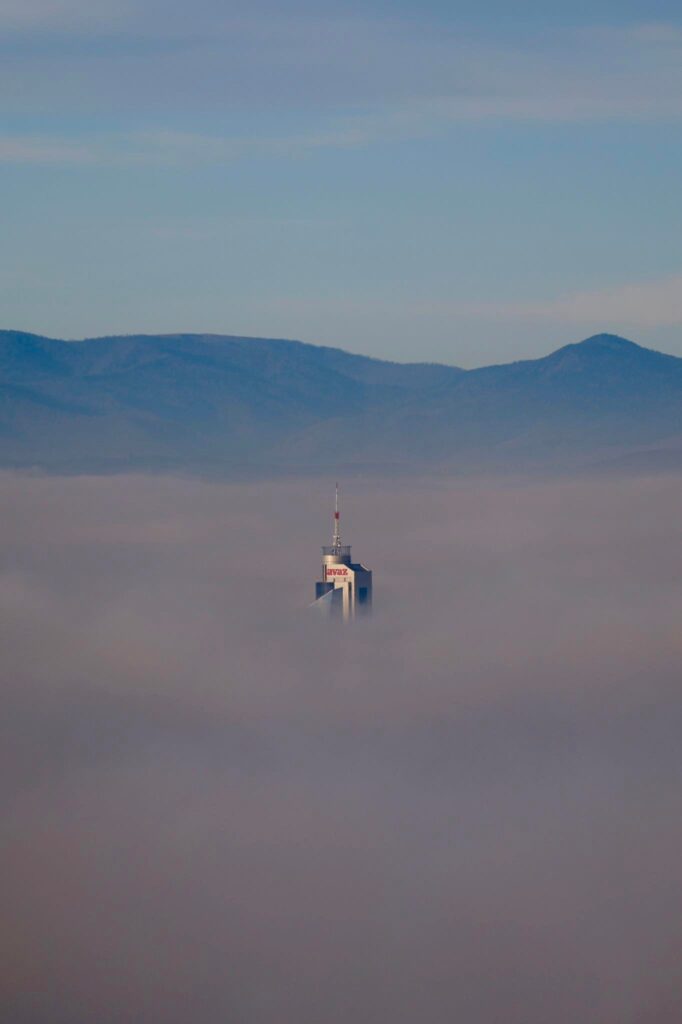Ekologija

- Guest
- Post n°376
 Re: Ekologija
Re: Ekologija
tako što ideš u školu pa naučiš kako, a ne da pitaš po tviteru, e odatle je zagađenje

- Posts : 2180
Join date : 2020-06-19
- Post n°377
 Re: Ekologija
Re: Ekologija
Pa odakle? Priznajenm, nisam pazio na casu. Deponija u Vinci, zelezara Smederevo, dizel masine, ili nesto drugo?

- Posts : 16550
Join date : 2014-11-06
- Post n°378
 Re: Ekologija
Re: Ekologija
Activists with @JustStop_Oil have thrown tomato soup on Van Gogh’s Sunflowers at the national Gallery and glued themselves to the wall. pic.twitter.com/M8YP1LPTOU
— Damien Gayle (@damiengayle) October 14, 2022

- Posts : 2180
Join date : 2020-06-19
- Post n°380
 Re: Ekologija
Re: Ekologija
pravi Perfomans. Benksi da jede govna
Sto bi reko DžR transformers
Sto bi reko DžR transformers

- Posts : 3803
Join date : 2020-09-27
Location : Waystone Inn
- Post n°382
 Re: Ekologija
Re: Ekologija
Nathan ima dobar tekst u CA
https://www.currentaffairs.org/2022/10/in-defense-of-bad-activism
https://www.currentaffairs.org/2022/10/in-defense-of-bad-activism
_____
my goosebumps have goosebumps

- Posts : 3388
Join date : 2021-09-13
- Post n°383
 Re: Ekologija
Re: Ekologija
evo kome treba objašnjenje toga koja je prava strana istorije, pljuvanje po omladini i bakarec ili sve suprotno od toga 
https://www.theguardian.com/commentisfree/2022/oct/19/van-gogh-sunflowers-just-stop-oil-tactics

Bezumnici,lažni ekolozi sprečavaju gradnju mosta preko Dunava u NS! To su varvari koji uništavaju Van Gogovu sliku, koji bi da ruše spomenike, da se ne grade putevi, kanalizacija, da ne rade rudnici. Finansirani i instruirani iz inostranstva. Šifra-Viola!https://t.co/bvVvPN1E1l
— Небојша Бакарец (@BakarecPolitika) October 18, 2022
https://www.theguardian.com/commentisfree/2022/oct/19/van-gogh-sunflowers-just-stop-oil-tactics
_____
ja se rukovodim logikom gvozdenih determinizama

- Posts : 8095
Join date : 2020-09-07
- Post n°384
 Re: Ekologija
Re: Ekologija
Ljudi su ljubomorni na Bakareca jer sve sam, sa svih 8 prstiju stvorio.
_____
Sweet and Tender Hooligan

- Posts : 8095
Join date : 2020-09-07
- Post n°385
 Re: Ekologija
Re: Ekologija
Ekološka hit trivia godine je da je žena zmaj borac protiv Rio Tinta u isto vreme i MC Rakijade u Pranjanima, a ako sam dobro razumeo, brat i ona su osnivači.
Pored toga tu su i veseli Slovenci i Granit Džaka iz profila.
Nikad i podvučem nikad ne eksiram alkohol tako da je za mene ovo Pakao.
Živeli!
Pored toga tu su i veseli Slovenci i Granit Džaka iz profila.
Nikad i podvučem nikad ne eksiram alkohol tako da je za mene ovo Pakao.
Živeli!
_____
Sweet and Tender Hooligan

- Posts : 7341
Join date : 2014-11-07
- Post n°386
 Re: Ekologija
Re: Ekologija
NEW - Mashed potato attack on $110 million Monet painting in Germany.pic.twitter.com/dK8YCB2F1C
— Disclose.tv (@disclosetv) October 23, 2022
evo, ja zaista ne znam. da li ovi ljudi dobijaju pare od naftnog lobija. mozda i rade za neku sluzbu. ili mozda je ovo kad se udruze aktivisticki mozak i anarho-primitivizam, koji je naso ekologiju kao zgodan izgovor za izivljavanje resantimana prema svemu modernom, pa makar to bile i slike, i koji bi da nas u ime planete sve vrate u pecinu.
_____
ova zemlja to je to

- Posts : 41630
Join date : 2012-02-12
Location : wife privilege
- Post n°387
 Re: Ekologija
Re: Ekologija
Не ваља им природно крзно, не ваља синтетика...
_____
cousin for roasting the rakija
И кажем себи у сну, еј бре коњу па ти ни немаш озвучење, имаш оне две кутијице око монитора, видећеш кад се пробудиш...

- Posts : 8095
Join date : 2020-09-07
- Post n°388
 Re: Ekologija
Re: Ekologija
A kao social credit sistem ne valja.
_____
Sweet and Tender Hooligan

- Posts : 3620
Join date : 2018-07-03
- Post n°389
 Re: Ekologija
Re: Ekologija
It's Happening!
"true love doesn't exi-" pic.twitter.com/u0W2U6ns1y
— Earth Is A Sales Funnel For SATAN (@GENIC0N) October 25, 2022
_____
"Sisaj kurac, Boomere. Spletkario si i nameštao ban pa se sad izvlačiš. Radiša je format a ti si mali iskompleksirani miš. Katastrofa za Burundi čoveče.
A i deluje da te napustio drugar u odsudnom trenutku pa te spašavaju ova tovarka što vrv ni ne dismr na ribu, to joj se gadi, i ovaj južnjak koji o niškim kafanama čita na forumu. Prejaka šarža." - Monsier K.

- Posts : 7229
Join date : 2019-11-04
- Post n°390
 Re: Ekologija
Re: Ekologija
https://www.foreignaffairs.com/world/time-geoengineering-now-climate-change?utm_campaign=tw_daily_soc&utm_medium=social&utm_source=twitter_posts
The Time for Geoengineering Is Now
Drastic Climate Change Calls for Drastic Measures
By Robert Litan
October 26, 2022
- Spoiler:
“Geoengineering” can mean a number of things, but it usually refers to the attempt to offset the rising global temperatures that result from the greenhouse effect by introducing particles in a systematic and sustained way into the earth’s atmosphere so that it better reflects the sun’s rays. Although the idea sounds futuristic, the basic concept has been around for a long time. In 1965, a group of scientific advisers to U.S. President Lyndon Johnson suggested that some kind of tinkering with the planet’s mechanics might be necessary. “The climatic changes that may be produced by the increased [carbon dioxide] content could be deleterious from the point of view of human beings,” they noted. “The possibilities of deliberately bringing about countervailing climatic changes therefore need to be thoroughly explored.”
They weren’t. Over the years, interest in geoengineering has periodically surged. But it has never attracted as much official attention or private investment as other methods of preventing climate change, mitigating its worst effects, or adapting to it. Now, however, as the pace and destructiveness of extreme weather events seem to be quickening beyond even some of the most pessimistic forecasts, geoengineering might finally have its moment.
Scientists are confident that geoengineering would have the desired effect because periodic volcanic eruptions, which spew all kinds of particles into the air, have cooled the earth in the past. But human intervention in the earth’s natural systems raises questions about the potentially dangerous impacts it could have on the weather and the oceans. There are also concerns about the moral hazard created by encouraging continued or even greater use of carbon-dioxide-emitting fossil fuels by suggesting the harm they do can be avoided. This potential consequence, in particular, explains the strong opposition to geoengineering from climate change activists and governments intent on addressing climate change by reducing fossil fuel emissions.
For decades, such concerns could remain merely theoretical. But the time has come for governments and the private sector to address them and to more seriously commit to applying geoengineering techniques while greatly increasing research to monitor the risks they pose.
IT’S GETTING HOT IN HERE
For many across the globe, recent months brought the summer from hell. Places such as China, Pakistan, and Europe saw record heat, drought, wildfires, and flash floods. In the United States, the sudden intensity of Hurricane Ian, which caused devastation across southwestern Florida, made it abundantly clear that the effects of climate change have arrived sooner and with greater ferocity than even many climate change activists had been expecting. As Steven Bowen, the former head of catastrophic insight at Aon, a leading property and casualty insurer, recently acknowledged, “The modeled climate impacts we assumed were 25 to 50 years away are in some cases already occurring today.”
Fortunately, in the United States, this summer also brought legislative progress on climate change. The Inflation Reduction Act, signed into law in August, included record-setting green technology subsidies. But no one should rely on such policy measures to avert future shocks from severe weather driven by climate change. Reducing the rate of growth of emissions will certainly be helpful over the long run, but it will not help the world avert extreme weather crises any time soon for several reasons.
For one thing, the United States accounts for only about 15 percent of the world’s annual carbon dioxide emissions, and emission reductions there are likely to be easily overtaken by increases in emissions from the rest of the world—especially developing countries, as they use fossil fuels to power their economic growth in future decades. For example, the public policy professor Jack Goldstone has calculated that if per person carbon dioxide emissions in Africa reach India’s level by midcentury, Africa’s annual emissions will equal all of the United States’ annual emissions today. This calculation doesn’t count the huge growth in emissions expected in India, too.
More fundamentally, the earth’s atmosphere has already absorbed enormous amounts greenhouse gases, especially carbon dioxide, which trap heat and warm the planet. These gases have accumulated over the course of human history but especially over the past several decades of fossil-fuel-driven economic growth. As a result, continued extreme weather is already baked in, regardless of the world’s efforts between now and 2050 to reduce the growth of new emissions.
Natural and technological methods for sucking carbon dioxide out of the atmosphere will not work in time to rescue the world from more decades of severe weather. Growing huge quantities of trees, which remove carbon dioxide naturally through photosynthesis, would help, but it would require acreage as large as the United States and Canada combined to make a material dent in existing carbon dioxide atmospheric concentrations.
Carbon dioxide can be sucked out of the air with technology, either directly, known as “direct air capture,” or indirectly, by taking it out of ocean water, giving the oceans the capacity to absorb more of it. Both technologies are very expensive, however, and are years away from being implemented at the scale required to make a difference in global temperatures, even with the generous subsidies for carbon capture technologies provided in the Inflation Reduction Act. Writing for the Environmental Defense Fund earlier this year, the journalist Joanna Foster noted that the United States alone may need to vacuum up as much as 1,850 million tons of carbon dioxide annually to hit its zero-emission target. But there are only a small number of direct air capture plants operating in the United States and Europe, and even the most advanced ones, such as the recently opened Orca plant in Iceland, can remove just 4,000 tons per year.
To be clear, all the above measures are necessary in the long run to tackle climate change, but they will not work fast enough to avert continued severe weather. The time has come for a more radical solution.
FAST, CHEAP, AND LITTLE MORAL HAZARD
In 2009 and again in 2013, a team of climate and foreign policy specialists led by the energy expert David Victor noted in Foreign Affairs that geoengineering research was not where it should be. They argued that it was time to substantially boost scientific research about geoengineering to combat climate change. Since then, the physicist David Keith has considerably fleshed out and tested one particular technique that has been studied most: introducing sulfur particles into the atmosphere so that it better reflects sunlight and thereby cools the planet.
According to Keith, the rewards of this technique, which he calls “Stratospheric Sulfate Injection” (SSI), outweigh the risks. In The New York Times in October 2021, Keith wrote: “While limited, the science so far suggests that the harms that would result from shaving a degree off global temperatures would be small compared with the benefits. Air pollution deaths from the added sulfur in the air would be more than offset by declines in the number of deaths from extreme heat, which would be 10 to 100 times larger.”
According to Keith, this method of geoengineering is “cheap and acts fast.” Gernot Wagner, an economist who specializes in climate change, and Wake Smith, a climate intervention lecturer, estimate that SSI would cost the world about $2 billion to $2.5 billion annually for 15 years, an amount the United States alone could easily afford even if no other countries shared the cost.
Recognizing the benefits of this technology does not mean dismissing the risks it could pose. SSI would likely increase oceanic acidification, which could harm coral reefs and sea life as the sulfites being sprayed fall back to the earth. It could also alter weather patterns in unknown ways. That is why SSI deployment must be accompanied by continuous monitoring of its effects and substantially more research into the possible use of other, more benign particles. Scientists should also study ways to offset oceanic acidification by, for example, introducing base elements into ocean water.
Fortunately, Keith has calculated that the efforts required to deploy SSI are manageable: “Less than two million tons of sulfur per year injected into the stratosphere from a fleet of about a hundred high-flying aircraft would reflect away sunlight and cool the planet by a degree.” And importantly, SSI can be dialed down by reducing sulfur injections or stopping them altogether if the risks look too great or other means of cooling the planet or removing carbon from the atmosphere prove more cost effective. One of those alternatives might eventually be a less risky form of geoengineering: cloud brightening (spraying saltwater into clouds to make them more reflective of sunlight) or cloud thinning (inserting ice into clouds to shorten their lifespan and thus allow more heat to escape from the earth). At this point, however, both of those alternatives are in the experimental stage and 15 to 20 years away from deployment.
Meanwhile, recent world events are mitigating the concerns about moral hazard that, up to now, have discouraged even research into geoengineering. Russia’s war in Ukraine and the Saudi-led OPEC+ reduction in oil production, which is expected to drive up energy prices, are stark reminders of the national security dangers of relying on other countries for fossil fuels. For years, national security arguments in the United States have been used to promote domestic oil and gas drilling so that the country won’t be so dependent on potentially unreliable Middle Eastern energy sources. But with the Russian economy’s reliance on fossil fuels, and with the U.S. economy and even the U.S. political system continuing to be subject to the whims of OPEC, the more the United States and other countries move away from fossil fuels, the less exposed all economies will be to future fossil fuel supply interruptions and oil price hikes. Indeed, the Biden administration’s recently released National Security Strategy makes the transition away from fossil fuels an integral part of the U.S. national security agenda.
In short, current national security imperatives should considerably, if not entirely, offset moral hazard concerns about geoengineering. The United States and its allies and partners have more reasons than ever before to avoid increasing their carbon emissions through more fossil fuel consumption.
GO IT ALONE
In an ideal world, the United States would not begin geoengineering without an international agreement and a global system of governance to supervise the effort. But our world is not ideal, and it is unimaginable that global consensus on geoengineering could be reached any time soon.
Accordingly, the United States should begin by cooperating more narrowly with like-minded countries on implementing geoengineering. Europe and much of the developed world, which this summer experienced firsthand the ravages of climate change, should cheer on this effort and maybe even join in. Although China may not cooperate or share the modest costs of implementing SSI, it, too, suffered this summer from climate-change-induced drought and flooding, and Chinese leaders would likely look the other way while other countries attempt to cool the planet. The only dissenting major power would probably be Russia, which is counting on more climate change to thaw Siberia, expanding arable land for agriculture, and to further melt the Arctic, allowing more opportunities for oil exploration. But in a scenario in which China is on the sidelines and the rest of the world is supporting geoengineering, Russia, already a global pariah, would just have to stew.
Almost everything in life involves tradeoffs. Responding to climate change is no exception. The world can continue to suffer through decades of tragic natural disasters and extreme weather events, or it can take the measured risk of changing course, given the changed circumstances. As the saying goes, “When the facts change, I change my mind. What do you do?”

- Posts : 7229
Join date : 2019-11-04
- Post n°391
 Re: Ekologija
Re: Ekologija
UN warns there's currently 'no credible pathway' to keep temperature rise under 1.5C
It says societal and infrastructure overhauls are needed to meet the Paris Agreement climate change goal.
Kris Holt
October 27, 2022 10:43 AM
The United Nations has issued another stark warning that, under current policies, the planet is falling far short of the Paris Agreement goal of keeping the rise in global temperatures below 1.5 degrees Celsius. That's the threshold scientists say we have to remain under in order to mitigate extreme, life-threatening weather events, such as heatwaves, droughts and tropical storms. Under current policies, the UN suggests we're nowhere close to meeting that climate change target and that there's "no credible pathway to 1.5C in place."
The UN laid out the dire state of affairs in a report it released just a week before the start of the COP27 climate conference in Egypt. It said that pledges made by national policy makers since COP26, which was held in Glasgow last year, "make a negligible difference to predicted 2030 emissions" and that progress over the last 12 months has been "highly inadequate." In fact, the report suggests that current active policies will lead to a 2.8C rise in global temperatures by the end of the 21st century and that implementing pledges that have been made will only limit the rise to between 2.4C and 2.6C. Even that would require perfect implementation of plans, with wealthier countries helping poorer ones to enact them.
"In the best case scenario, full implementation of conditional NDCs [nationally determined contributions], plus additional net zero commitments, point to a 1.8C rise," Inger Andersen, executive director of the United Nations Environment Programme, said. "However, this scenario is currently not credible."
The 13th edition of the Emissions Gap Report argues that major societal and infrastructure changes are required. It lays out the necessary actions for sectors including electricity supply, industry, transport and buildings, along with the food and financial systems. The report notes that, in order to get on course to meet the 1.5C goal, we'd need to reduce greenhouse gas emissions by a further 45 percent by 2030, compared with projections based on current policies. To limit the rise in temperatures to under 2C, an extra 30 percent reduction in emissions is required.
"Is it a tall order to transform our systems in just eight years? Yes. Can we reduce greenhouse gas emissions by so much in that timeframe? Perhaps not. But we must try," Andersen wrote. "Every fraction of a degree matters: to vulnerable communities, to species and ecosystems, and to every one of us."
https://www.engadget.com/un-emissions-gap-report-climate-change-warning-144323723.html

- Posts : 8095
Join date : 2020-09-07
- Post n°393
 Re: Ekologija
Re: Ekologija
Hahahahah!
Kakva budalaština od mape - zelenom bojom su obeležena mesta gde se ne meri PM.
Pa poserem vam se u grafiku.
Kakva budalaština od mape - zelenom bojom su obeležena mesta gde se ne meri PM.
Pa poserem vam se u grafiku.
_____
Sweet and Tender Hooligan

- Posts : 13817
Join date : 2016-02-01
- Post n°394
 Re: Ekologija
Re: Ekologija
Da, stanice na mapi na kojima je vazduh dobar ili prihvatljiv (sem borske) uopšte i ne mere PM2.5 čestice.
Tu je sad pitanje treba li ukinuti bojenje za takve stanice, jer se i na njihovim senzorima SO2, NO2 ili O3 može pojaviti preveliko zagađenje, koje bi onda ostalo neobeleženo na mapi.
Tu je sad pitanje treba li ukinuti bojenje za takve stanice, jer se i na njihovim senzorima SO2, NO2 ili O3 može pojaviti preveliko zagađenje, koje bi onda ostalo neobeleženo na mapi.

- Posts : 8095
Join date : 2020-09-07
- Post n°395
 Re: Ekologija
Re: Ekologija
Ko hoće time da se bavi mogao bi da izračuna PM na osnovu kombinacije podataka najbližih stanica i meteoroloških uslova.
Ja bih umesto zelene kućice za početak stavio znak pitanja - nikako ne bih uradio ovo što su oni uradili - pre bih napravio 2 mape, sa i bez PM čestica.
Ja bih umesto zelene kućice za početak stavio znak pitanja - nikako ne bih uradio ovo što su oni uradili - pre bih napravio 2 mape, sa i bez PM čestica.
_____
Sweet and Tender Hooligan

- Korisnik

- Posts : 4670
Join date : 2015-02-17
- Post n°396
 Re: Ekologija
Re: Ekologija
Nit.
https://en.rattibha.com/thread/1559191234899415040

https://en.rattibha.com/thread/1559191234899415040
There is a curious phenomenon that results from the relatively brief window of time a single human lifetime provides: we perceive the current state of the natural world as “normal”.
This is known as the Shifting Baseline Syndrome.


- Posts : 8095
Join date : 2020-09-07
- Post n°397
 Re: Ekologija
Re: Ekologija
2019
gusta_suma.jpg
1950
manje_sume_jer_struja_i_otisli_u_gradove.jpg
1800
mnogo_manje_sume_jer_seljaci_nema_struje_grejanje_kuvanje.jpg
gusta_suma.jpg
1950
manje_sume_jer_struja_i_otisli_u_gradove.jpg
1800
mnogo_manje_sume_jer_seljaci_nema_struje_grejanje_kuvanje.jpg
_____
Sweet and Tender Hooligan

- Posts : 52531
Join date : 2017-11-16
- Post n°398
 Re: Ekologija
Re: Ekologija
ontheotherhand wrote:Nit.
https://en.rattibha.com/thread/1559191234899415040
There is a curious phenomenon that results from the relatively brief window of time a single human lifetime provides: we perceive the current state of the natural world as “normal”.
This is known as the Shifting Baseline Syndrome.
Plivanje u moru je sve bezbednije i bezbednije

- Posts : 41630
Join date : 2012-02-12
Location : wife privilege
- Post n°399
 Re: Ekologija
Re: Ekologija
Као у оном вицу кад супермен скаче с моста у Неретву, а ови му све вичу да не скаче на ту страну, има шкољки доле. Кад је изронио сав раскрвављен, пита какве су вам то шкољке. Па има од ладе, има од југа...
_____
cousin for roasting the rakija
И кажем себи у сну, еј бре коњу па ти ни немаш озвучење, имаш оне две кутијице око монитора, видећеш кад се пробудиш...



 by Guest Wed Oct 12, 2022 9:13 pm
by Guest Wed Oct 12, 2022 9:13 pm

